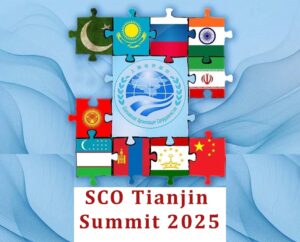Central Asian leaders stress importance of BRI, vow support for Xi’an Declaration

Xi’an, The Gulf Observer: Leaders from the Central Asian countries stressed the importance of the Belt and Road Initiative (BRI) and vowed support for the Xi’an Declaration during the China-Central Asia Summit on Friday in Xi’an, northwest China’s Shaanxi Province.
They spoke highly of Chinese President Xi Jinping’s vision of building a community with a shared future for mankind, the Global Development Initiative, the Global Security Initiative and the Global Civilization Initiative.
They would take the 10th anniversary of the BRI as an opportunity to advance regional connectivity, deepen pragmatic cooperation in various fields and build a closer China-Central Asia community with a shared future.
Kazakh President Kassym-Jomart Tokayev said that the synergy of the potential of the Central Asian countries with the enormous economic opportunities of China can lead bilateral partnerships onto a new, higher trajectory, and that comprehensive cooperation with China is a long-term stabilizing factor for Kazakhstan’s continuous progress.
In recent years, the BRI has promoted the building of modern transport infrastructure in many countries, he said. As a close neighbor and reliable partner of China, Kazakhstan will continue to take an active part in Belt and Road cooperation, he said.
Kyrgyz President Sadyr Japarov said that the implementation of the BRI fits the national development strategies of the Central Asian countries and will bring huge economic benefits.
He hailed the importance of the China-Kyrgyzstan-Uzbekistan railway project, calling it an important link of the BRI as the implementation of the strategic project will benefit transportation of the Central Asia region and connect about 4 billion people.
Noting that agriculture is the economic pillar of the Central Asian countries, Tajik President Emomali Rahmon said, “We are ready to cooperate with China in the field of agriculture to jointly address food security issues, introduce new agricultural cultivation and processing technologies, and attract investment.”
Greater connectivity in Central Asia is an important driving factor for reviving the Silk Road, he said, adding that the China-Central Asia partnership is increasingly important in view of the complex international environment.
Turkmen President Serdar Berdimuhamedov said that Central Asia and China have always had amity between their peoples, pragmatic cooperation and a good-neighborly friendship. The comprehensive potential of the five Central Asian countries and China, together with strong resource endowment, industrial foundation and technological reserve, opens up broad prospects for the economic development of both sides, he said.
Berdimuhamedov said that the economic potential and logistics capacity of each country should be fully utilized to form effective industrial cooperation plans. It serves the interests of people in all countries to jointly formulate cooperation projects in the energy field and promote the expansion and diversification of foreign economic relations, he said.
Uzbek President Shavkat Mirziyoyev said Central Asian countries and China have developed a mature relationship based on trust, respect and mutual interest.
Mirziyoyev proposed the goal of doubling the trade volume between Central Asian countries and China by 2030, stressing that the goal should be achieved by promoting balanced growth in the supply of industrial goods and agricultural products, establishing effective trade and logistics infrastructure and modern wholesale distribution networks, as well as establishing green channels and unified e-commerce platforms.


